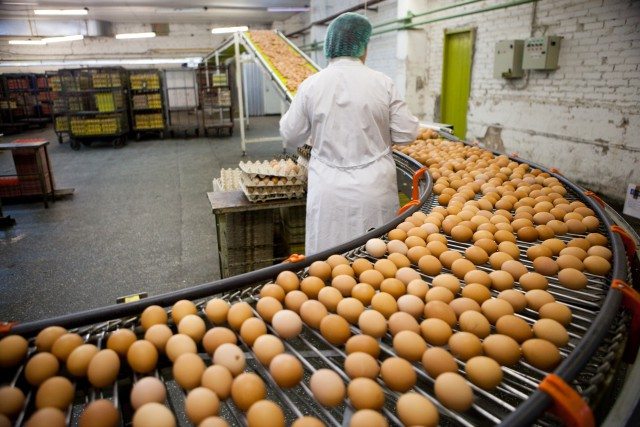There is yet untapped potential in the food sector by combining data in the entire value chain from farm to fork, according to report findings by the Technical University of Denmark, SEGES/Danish Agriculture & Food Council, and DI Digital.
The report identifies new opportunities to accelerate the development of the Danish food sector with the help of Big Data.
The food industry could potentially improve productivity by up to 5% by using Big Data to optimize production, boost food quality and safety, and improve the health of both people and animals.
This is one of the findings of the report on Big Data from farm to fork (Big Data fra jord til bord).
The purpose aims to chart the potential for innovation and growth in the food industry, by utilizing Big Data in a variety of areas, such as the production of pigs, cattle, and poultry.
One of the ideas described in the report centers on developing tools for collecting and applying real-time data that farmers can then use to improve the health and productivity of pig herds, and using sensors to optimize feeding strategies and increase health and animal welfare in herds of cattle.
Recommendations for improving health
The report proposes to connect information about people’s dietary habits with health through a range of technological platforms in the form of apps.
“Consumer health is one of the areas that stands to benefit from a radically innovative use of Big Data,” says Professor Jørn Smedsgaard.
“An increasing number of Danes are being diagnosed with diet- and lifestyle-related illnesses such as diabetes and cardiovascular diseases.”
“Currently, these people have to make do with a guide based on broad average considerations.
“By using Big Data to combine personal data from many different sources, e.g. health data combined with actual diet and exercise habits (perhaps from personal sensors), much more personal recommendations can be given via various technological platforms, thus effecting a value-adding improvement of the quality of life.”
Increasing competitiveness
The food sector is of great importance to Denmark’s national economy, foreign exchange balance, and employment. According to Jan Mousing, CEO of SEGES/Danish Agriculture & Food Council, it is therefore important that the sector maintains and strengthens its international position.
Big Data can help the food sector progress from efficiency measures to innovation and thus serve as a driver for competitiveness.
“Using Big Data puts us in a position to make a significant contribution to boosting competitiveness and revenue generation in the food industry,” says Niels Axel Nielsen, senior VP at DTU.
“Through this sector development project, we have succeeded in identifying ten research and development projects with specific commercial applications for Big Data, and DTU is looking forward to contributing the overarching technical research in this context.”
New DTU center for Big Data
In brief, Big Data is about using major volumes of varied data to develop algorithms and mathematical models that create pattern recognition in the data to achieve increased insight and ultimately greater value creation.
In order to reinforce research and education in the field of Big Data, DTU is now setting up a new center devoted to Big Data.
“By establishing this center, we hope to deploy research into Big Data at DTU and to help develop and maintain a strong selection of courses in the area,” says Professor Jan Madsen, deputy head of department at DTU Compute.
“The intention is to equip future students to better employ and use new Big Data tools such as sensors, analysis models, and visualizations that will benefit not only the food industry, but also other sectors such as transport and energy.”
“Big Data holds huge perspectives for society. Using large data volumes will enable us able to map, e.g., behavior patterns down to the smallest detail,” Adam Lebech, industry director, DI Digital, which is the Confederation of Danish Industries’ association for IT, telecommunications, electronics and communications companies.
“It will provide us with important knowledge about food, which researchers, businesses, and the authorities can use in their day-to-day work. IT companies play a central role as suppliers in this context.”
Story by Christina Tækker from the Technical University of Denmark










